Table of Contents
ToggleIntroduction
How to Become a Content Writer? Content writing is a rapidly growing field that offers endless opportunities for individuals who have a knack for writing. In today’s digital world, businesses and brands heavily rely on well-crafted content to engage their audience, improve online visibility, and drive conversions. Whether it’s blog posts, website content, social media captions, or product descriptions, content writing plays a crucial role in marketing and communication strategies.
With the increasing demand for high-quality content, becoming a content writer can be a rewarding career choice. Not only does it offer flexibility, but it also allows writers to work in various industries, from technology to healthcare. Whether you want to work as a freelancer, a full-time employee, or even start your own blog, content writing provides numerous opportunities to earn and grow professionally.
What is Content Writing?
- Definition: Content writing is the process of creating, planning, and editing written material for digital or print platforms.
- Purpose: The goal is to inform, engage, and convert readers through high-quality, relevant, and well-structured content.
- Examples: Blogs, website copy, articles, social media posts, and marketing materials all fall under content writing.
Content writing is more than just writing words—it involves research, SEO optimization, and creativity to make the content valuable and reader-friendly. A good content writer understands the target audience and crafts content that meets their needs while aligning with business goals.
Why Choose Content Writing as a Career?
- High Demand: Businesses, blogs, and digital platforms need fresh and engaging content regularly, creating a strong demand for skilled writers.
- Flexibility: Content writers can work remotely, choose their niche, and set their own schedules, making it a great career for freelancers and digital nomads.
- Earning Potential: With experience and expertise, content writers can earn through freelancing, full-time jobs, blogging, and content marketing projects.
If you enjoy writing and have a passion for storytelling, content writing can be an excellent career choice. It offers a creative and rewarding path with numerous opportunities to grow, learn, and earn while doing something you love.
How to Become a Content Writer
Becoming a content writer requires a combination of creativity, research skills, and adaptability. Unlike traditional writing, content writing focuses on engaging an audience, improving search rankings, and driving conversions. Whether you want to write blogs, social media posts, or website content, mastering different writing styles is essential.
The journey to becoming a successful content writer starts with developing strong writing skills and understanding industry demands. From SEO strategies to persuasive copywriting, continuous learning is crucial. With the right skills, platforms, and persistence, anyone can build a thriving career in content writing.
Essential Skills for Content Writers
- Strong Writing Ability: A good grasp of grammar, punctuation, and clarity is essential for crafting compelling content.
- SEO Knowledge: Understanding keyword research, meta descriptions, and on-page SEO helps improve content visibility.
- Research Skills: Writers must gather accurate information to create informative and credible content.
- Adaptability: Content varies across platforms, so being able to switch tones and styles is crucial.
- Editing and Proofreading: Strong editing skills help refine content, ensuring it is error-free and engaging.
A successful content writer must balance creativity with technical skills. Writing engaging, informative, and optimized content is key to standing out in the industry.
Steps to Start Your Content Writing Career
- Build Writing Samples: Start by creating blog posts, guest articles, or portfolio pieces to showcase your skills.
- Learn SEO Basics: Understanding keyword usage, readability, and search intent improves your content’s reach.
- Choose a Niche: Specializing in a particular industry (e.g., health, tech, or finance) can increase your demand.
- Create an Online Presence: Build a personal blog or LinkedIn profile to attract potential clients.
- Join Freelance Platforms: Websites like Upwork, Fiverr, and Freelancer offer opportunities to land writing gigs.
Starting a career in content writing requires patience and persistence. By consistently improving and marketing yourself, you can establish a strong reputation in the field.
How to Gain Experience as a Beginner
- Guest Blogging: Contributing to well-known blogs helps build credibility and reach a larger audience.
- Internships and Volunteer Work: Writing for non-profits, startups, or internships provides hands-on experience.
- Personal Blog or Medium Posts: Publishing your own content showcases your skills and attracts potential clients.
- Networking with Writers: Joining writing communities and forums helps you learn from experienced professionals.
- Taking Online Courses: Platforms like Coursera and HubSpot offer free and paid content writing courses.
Gaining experience as a beginner is all about writing consistently and improving your craft. The more you write, the better you get, increasing your chances of landing paid opportunities.
Types of Content Writing
Content writing is a broad field that includes various styles and formats tailored for different audiences and platforms. Each type serves a unique purpose, from educating readers to persuading customers to take action. Understanding these content types helps writers choose a niche and improve their career prospects.
Whether you enjoy storytelling, persuasive writing, or detailed explanations, there is a type of content writing that suits your skills. Mastering different formats allows writers to expand their opportunities and work across industries, from marketing and entertainment to education and technology.
Blog Writing
- Purpose: Educates, informs, or entertains readers with long-form content.
- Platforms: Used in personal blogs, company websites, and news sites.
- Style: Conversational, engaging, and structured for readability.
Blog writing is one of the most popular forms of content writing, offering in-depth insights on various topics. A well-written blog post improves website traffic, builds authority, and engages audiences with valuable information.
Copywriting
- Purpose: Persuades readers to take action, such as buying a product.
- Examples: Advertisements, sales pages, email campaigns, and social media ads.
- Tone: Short, direct, and compelling with strong call-to-actions (CTAs).
Copywriting is all about crafting persuasive messages that drive sales and brand awareness. It requires creativity, psychology, and marketing skills to convince audiences effectively.
Technical Writing
- Purpose: Explains complex topics in a simple and structured manner.
- Examples: User manuals, whitepapers, and software documentation.
- Style: Clear, concise, and highly informative.
Technical writing is essential in industries like IT, engineering, and healthcare, where accurate information is crucial. Writers in this field must break down complicated concepts into easy-to-understand content.
SEO Writing
- Purpose: Optimizes content for search engines to increase visibility.
- Key Elements: Keyword placement, meta descriptions, and user intent.
- Style: Informative, engaging, and structured for SEO best practices.
SEO writing is essential for digital marketing, as it helps websites rank higher on search engines. Writers must balance keyword optimization with natural, reader-friendly content.
Ghostwriting
- Purpose: Writing content on behalf of someone else without credit.
- Examples: Books, articles, blog posts, and speeches.
- Tone: Matches the client’s voice and writing style.
Ghostwriting allows writers to work behind the scenes for businesses, authors, and influencers. While the writer remains anonymous, it is a great way to earn and build industry experience.
Scriptwriting
- Purpose: Creates engaging scripts for videos, podcasts, and films.
- Examples: YouTube videos, advertisements, TV shows, and movies.
- Style: Conversational, visual, and storytelling-driven.
Scriptwriting combines storytelling and dialogue to create compelling content for visual and audio platforms. It requires creativity and an understanding of audience engagement.
Content Writer Jobs
Content writing offers a wide range of job opportunities, from freelancing to full-time positions in companies. With the rise of digital marketing, businesses need skilled writers to create engaging content for websites, blogs, social media, and marketing campaigns. Whether you prefer the flexibility of freelancing or the stability of a full-time job, there are various options to explore.
Finding a content writing job requires a strategic approach, including building a portfolio, networking, and applying to the right platforms. Many companies and brands seek talented writers who can create high-quality content that resonates with their audience. By understanding the job market and preparing well, aspiring writers can land rewarding opportunities.
Freelance vs. Full-Time Content Writing Jobs
- Freelance Writing: Offers flexibility, work-from-home opportunities, and the ability to choose clients and projects.
- Full-Time Writing: Provides job security, a stable income, and benefits like health insurance and paid leaves.
- Which is Better?: Freelancing suits those who prefer independence, while full-time roles offer consistent earnings and career growth.
Choosing between freelancing and full-time writing depends on your lifestyle, financial goals, and work preferences. Some writers start with freelancing to gain experience before transitioning to full-time roles.
Where to Find Content Writing Jobs?
- Freelance Platforms: Websites like Upwork, Fiverr, and Freelancer connect writers with clients.
- Job Boards: Sites like Indeed, LinkedIn, and Glassdoor list full-time and remote content writing jobs.
- Networking: Engaging with writers, marketers, and business owners on LinkedIn can lead to job opportunities.
Writers can find jobs across different industries, from tech to lifestyle and finance. Regularly checking job postings and reaching out to potential clients increases the chances of securing work.
How to Apply for Content Writing Jobs?
- Create a Strong Portfolio: Showcase your best writing samples to demonstrate your skills.
- Write a Compelling Cover Letter: Highlight your experience, expertise, and why you’re a great fit for the role.
- Follow Up with Employers: Sending a polite follow-up email can increase your chances of getting noticed.
A well-structured application improves your chances of landing a content writing job. Tailoring each application to match the job description shows professionalism and enthusiasm.
SEO and Content Writing
SEO (Search Engine Optimization) is a crucial aspect of content writing that helps improve a website’s visibility on search engines like Google. High-quality content combined with effective SEO strategies ensures that articles, blogs, and web pages rank higher in search results. Writers who understand SEO can create content that attracts more traffic, enhances user engagement, and boosts conversions.
For content writers, mastering SEO is not just about adding keywords but also about delivering valuable, user-friendly content. From optimizing headlines to structuring articles for readability, SEO-friendly writing increases a website’s authority and search rankings. A well-optimized piece of content can drive consistent organic traffic, making SEO knowledge essential for every writer.
Importance of SEO in Content Writing
- Increases Visibility: SEO helps content rank higher on search engines, making it easier for users to find.
- Boosts Website Traffic: Well-optimized content attracts organic traffic without relying on paid ads.
- Improves User Experience: SEO-friendly content is well-structured, easy to read, and valuable to readers.
SEO is the bridge between quality content and discoverability. Without SEO, even the best-written articles may struggle to reach the right audience.
Best SEO Practices for Writers
- Use Relevant Keywords: Incorporate primary and secondary keywords naturally to improve search ranking.
- Write Engaging Meta Descriptions: A well-crafted meta description increases click-through rates.
- Optimize Headings & Subheadings: Using H1, H2, and H3 tags enhances readability and SEO structure.
Following these SEO best practices helps content perform better in search results while maintaining readability and engagement for users.
How to Optimize Content for Better Ranking?
- Improve Readability: Use short paragraphs, bullet points, and simple language for a better user experience.
- Add Internal & External Links: Linking to relevant pages boosts credibility and enhances SEO.
- Use High-Quality Images & Alt Text: Visual elements make content engaging, and alt text helps with SEO.
Optimizing content for search engines involves a mix of technical and creative strategies. By focusing on user intent and SEO fundamentals, writers can improve rankings and drive more organic traffic.
Tools for Content Writers
Content writers rely on various tools to enhance their writing quality, optimize content for search engines, and improve efficiency. Whether it’s grammar correction, keyword research, or AI-powered assistance, the right tools can make content creation faster and more effective. These tools help writers maintain clarity, structure, and engagement while ensuring their content meets industry standards.
With the increasing demand for high-quality, SEO-optimized content, writers must use the best tools available. From editing software to AI-driven content suggestions, these resources save time and enhance productivity. Knowing which tools to use can help content writers stay competitive and produce professional-grade work.
Grammar and Editing Tools
- Grammarly: Checks grammar, spelling, and readability to ensure error-free writing.
- Hemingway Editor: Highlights complex sentences and improves content clarity.
- ProWritingAid: Offers in-depth grammar analysis and style improvement suggestions.
Grammar and editing tools help writers refine their content and maintain a professional tone. These tools detect errors, suggest improvements, and enhance readability for a polished final draft.
SEO and Keyword Research Tools
- Google Keyword Planner: Finds high-ranking keywords for content optimization.
- Ahrefs & SEMrush: Provides keyword difficulty, search volume, and competition analysis.
- Yoast SEO: Helps optimize content for better search engine ranking.
SEO tools are essential for writers who want their content to rank higher. By using keyword research tools, writers can create content that aligns with user search intent and improves online visibility.
Free AI Writing Assistants
- ChatGPT: Generates content ideas, outlines, and helps with research.
- Jasper AI: Assists in creating marketing copy, blog posts, and ad content.
- Copy.ai: Helps in generating compelling headlines and engaging copy.
AI writing assistants streamline the writing process by offering suggestions, improving efficiency, and enhancing creativity. While they can’t replace human writers, they serve as valuable tools for brainstorming and content refinement.
How to Monetize Your Content Writing Skills
Content writing is not just a skill but a profitable career path with multiple income streams. Writers can earn through freelancing, blogging, affiliate marketing, and working with brands on sponsored content. With the rise of digital marketing, businesses are constantly looking for quality content, making it an ideal time to monetize writing skills.
To succeed, writers need to identify the best income sources that align with their expertise and interests. Whether it’s working with clients on freelance platforms, building a blog, or leveraging affiliate marketing, consistency and strategy are key. Diversifying income streams can help writers maximize earnings while growing professionally.
Freelancing Platforms
- Best Platforms: Upwork, Fiverr, Freelancer, and PeoplePerHour offer freelance writing gigs.
- Earning Potential: Writers can set their own rates and earn per word, project, or hourly basis.
- How to Succeed: Building a strong portfolio and client relationships helps secure high-paying projects.
Freelancing is one of the quickest ways to start earning as a content writer. With a solid portfolio and good client reviews, writers can land consistent work and increase their rates over time.
Creating a Blog and Earning Through Ads
- Start a Blog: Choose a niche and consistently publish high-quality content.
- Monetization Methods: Earn through Google AdSense, Mediavine, or direct ad placements.
- Long-Term Income: Blogging requires time and effort but can generate passive income over time.
A blog serves as both a portfolio and an income source. Once it gains traffic, writers can monetize it through ads and sponsored content while establishing themselves as industry experts.
Affiliate Marketing and Sponsored Content
- Affiliate Marketing: Earn commissions by promoting products with affiliate links.
- Sponsored Content: Brands pay writers to review or promote their products in articles.
- Best Platforms: Amazon Associates, ShareASale, and Impact provide affiliate programs.
Affiliate marketing and sponsored content offer a great way to earn passive income. By writing valuable content with strategic product recommendations, writers can generate consistent earnings.
Conclusion
Content writing is a dynamic and rewarding career that offers endless opportunities for growth and income. Whether you choose to work as a freelancer, a full-time writer, or a blogger, mastering essential skills like SEO, research, and adaptability is crucial. The demand for quality content is ever-growing, making it a great time to start and establish yourself in the field.
Success in content writing depends on consistency, learning, and strategic career planning. Writers who continuously improve their skills, build a strong portfolio, and explore different monetization methods can create a sustainable career. By staying updated with industry trends and networking with professionals, content writers can maximize their potential and achieve long-term success.
Key Takeaways for Aspiring Content Writers
- Develop Strong Writing Skills: Clarity, creativity, and research-based writing are essential for success.
- Learn SEO Basics: Optimizing content for search engines increases visibility and audience reach.
- Explore Different Writing Niches: Specializing in a niche can make you more valuable and increase earning potential.
Aspiring content writers should focus on honing their skills, understanding industry needs, and delivering value to their readers. Consistent effort and quality writing will set them apart from the competition.
Next Steps to Build a Successful Career
- Create a Portfolio: Showcase writing samples to attract clients and job opportunities.
- Apply for Jobs & Freelance Gigs: Use platforms like Upwork, Fiverr, and LinkedIn to find work.
- Keep Learning & Networking: Join writing communities, take courses, and connect with industry experts.
Building a content writing career takes time, but with the right approach, it can be both fulfilling and financially rewarding. By taking proactive steps, aspiring writers can turn their passion into a sustainable profession.
Content Writing FAQs
What does a content writer do?
A content writer creates engaging, informative, and SEO-optimized content for websites, blogs, social media, and marketing materials. Their goal is to inform, engage, and convert readers.
What qualifications do you need to be a content writer?
A formal degree is not required, but a background in English, journalism, or marketing can help. Strong writing skills, SEO knowledge, and creativity are more important than qualifications.
What are the skills of a content writer?
A content writer should have excellent grammar, research skills, creativity, SEO knowledge, and adaptability to write for different audiences and industries.
How do I start myself as a content writer?
Start by creating writing samples, learning SEO basics, and joining freelance platforms. Building a personal blog or portfolio can help showcase your skills to potential clients.
Are content writers paid well?
Yes, experienced content writers can earn well, especially in specialized niches like technical writing, finance, and health. Freelancers and full-time writers can make competitive incomes.
What is an example of content writer work?
Examples include blog posts, website content, product descriptions, social media captions, email newsletters, and ad copies written for businesses or brands.
Can I be a content writer with no experience?
Yes, beginners can start by writing guest blogs, creating sample pieces, and taking online writing courses. Many companies and clients hire entry-level writers based on skills rather than experience.
How much do content writers make in the UK?
In the UK, content writers typically earn between £20,000 to £50,000 per year, depending on experience, niche, and job type (freelance or full-time).




